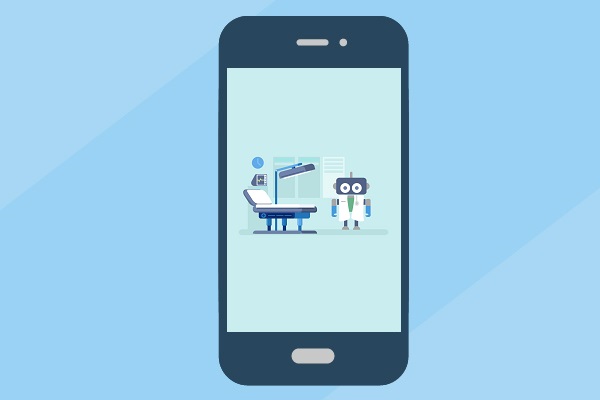 |
| source: Aumcore.com |
Benefits of Mobile Devices in Healthcare
The use of mobile devices in healthcare is acting as a catalyst to a paradigm shift that is changing the way the whole industry works. By allowing doctors to communicate with patients from anywhere in the world (and vice versa), mHealth is proving to be a great asset that allows for remote diagnoses and health tracking so delays in response are reduced or completely eliminated; if anything happens, action can be taken right then and there.For example, with IoT and the emerging technology it brings that’s connecting tools like never before, and thanks to the mobile technology that’s streamlining processes and synthesising information with real-time information and updates, we now have remote patient monitoring that allows doctors to treat and diagnose patients who otherwise can’t make an in-person visit. They can review patient records and history while giving nurses and caregivers advice on what to do, and collect medical and health data and revert it back to them with accurate diagnoses. In doing so, they can help the elderly or those who can’t travel, such as expecting mothers, and provide services whenever they’re needed. Additionally, with the use of sensors in mobility devices like walkers and canes, alerts can be sent in case of accidents like a fall.
Along with a similar line, wearable devices like Fitbit, iWatch and a myriad of others are proving to be excellent for monitoring vitals and making sure everything stays in check. They can track health and wellness to ensure optimal health, and in case an emergency comes up (or is about to), (early) warnings and alerts can be sent to medical professionals to prevent disaster. As such, they can be also be used in chronic disease management for early detection of deterioration, such as in the maintenance of diabetes. In such a case, wearable devices can test blood pressure and glucose levels to ensure things are going as they should. Similarly, devices like wireless BP monitors, resynchronization therapy, and pacemakers can be used to reduce the risk of heart failure.
Mobile Apps in the Healthcare Industry
The buzz around mHealth isn’t just about physical devices, it’s also about certain mobile apps that are similarly revolutionizing healthcare. For example, HealthTap, a technology company that delivers a suite of connected health apps, surveyed more than 65,000 physicians in its network and another 500,000 in its referral network on their recommendations on a wide variety of health and wellness apps. Here are the top 10 apps for iOS and Android they found:Top Health and Medical Apps for iOS
1. Calorie Counter and Diet Tracker (MyFitnessPal.com)2. Weight Watchers Mobile (Weight Watchers International)
3. Lose It! (FitNow)
4. White Noise Lite (TMSoft)
5. First Aid (American Red Cross)
6. Runkeeper (FitnessKeeper)
7. Stroke Riskometer (Autel)
8. Emergency First Aid & Treatment Guide (Phoneflips)
9. Instant Heart Rate (Azumio)
10. Fooducate (Fooducate)
Top 10 Health and Medical Apps for Android
1. Weight Watchers Mobile (Weight Watchers International)2. White Noise Lite (TMSoft)
3. Lose It! (FitNow)
4. First Aid (American Red Cross)
5. RunKeeper – GPS Track Run Walk (FitnessKeeper)
6. Emergency First Aid/Treatment (Phoneflips)
7. Instant Heart Rate (Azumio)
8. Fooducate – Healthy Food Diet (Fooducate)
9. Glucose Buddy – Diabetes Log (Azumio)
10. Pocket First Aid & CPR (Jive Media)


No comments :
Post a Comment